Overseas Koreans Platform
- Main page
- Overseas Koreans Platform
- News Room
News Room
- Main page
- Overseas Koreans Platform
- News Room
- Country
- United States
- Date
- 2023.05.12
The relationship between Korea and United States started 120 years ago when people from Korea arrived in Hawaiian territory. The United States federal government declared January 13th as Korean American Day 120 years ago to commemorate the arrival of Koreans in the United States for the first time.
Former congressman Kim Chang-joon of California was the first Korean American elected to the United States federal government. Current Korean American congressmen and congresswomen in the federal government include Andy Kim (New Jersey), Marilyn Strickland (Washington), Young Kim (California), and Michelle Steel Park (California).
In addition to the federal government, there are independent legislative systems in each state, with the lives of residents largely affected by state law. Below, we introduce the elected legislators from New York and New Jersey along with members of the New York City Council.
Following California, New York and New Jersey are the two states where the largest number of Koreans live in the United States. There are a total of about 300,000 Koreans living in New York and New Jersey, but the actual number is much higher when including international students, resident employees, and permanent residents with Korean citizenship. All currently serving politicians of Korean descent enjoy the firm support of their local constituencies heavily populated by those of Korean descent.
1. Ron Kim (Korean name: Kim Tae-sok) Assemblymember of the State of New York (New York District 40)
Congressman Ron Kim has the most affluent political career among the politicians introduced here. His district constituencies are the areas around Flushing, where high concentrations of Koreans are located in New York City. In 2012, he was the first Korean elected as congressman in New York state, and has been elected six times since 2013. He entered the political world as an aide to John Liu, who currently serves in the New York Senate, back when he was a member of the New York City Council. Ron Kim particularly focuses on legislation for small business owners and issues in the nail art industry where many Koreans work. During the COVID-19 pandemic, he became involved in a conflict with Andrew Cuomo, the former governor of New York, regarding underreporting the number of deaths in nursing homes. Through introduction of the YU GWAN-SUN’S LAW·A9844 bill that requires public school students in New York City to learn about the life of Yu Gwan-Sun and the March First Independence Movement in Korea, he has been recognized for his devotion to legislation related to Korea. Last year, he also made great efforts to establish “Kimchi Day” in New York state.
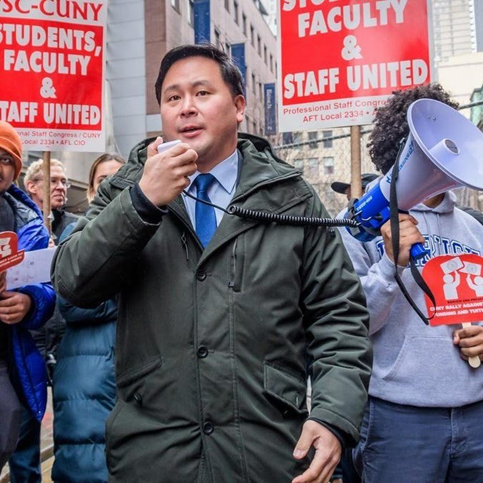
Ron Kim, assemblymember of the State of New York (Source: Ron Kim’s Facebook page)
2. Grace Lee (Korean name: Lee Young-eun) Assemblymember of the State of New York (New York District 65)
Elected in 2022, Grace Lee has carried out her legislative activities since 2023, representing the region around Chinatown in Manhattan. For a long time, Ron Kim was the only assemblymember of Korean descent, but with the election of Grace Lee, she has become the second representative of Korean descent in New York state. She graduated from Columbia University, and entered politics through a social movement by co-founding Children First, an environmental coalition to prevent the pollution of rivers and the ocean around Manhattan. As a mother of three, she focuses her legislative activities on high quality education and safety, and has also announced legislative efforts regarding climate change and environmental issues. Her recently proposed bills related to Korea include Bill A06579, making it mandatory to provide historical education related to Asian immigrants in New York state.
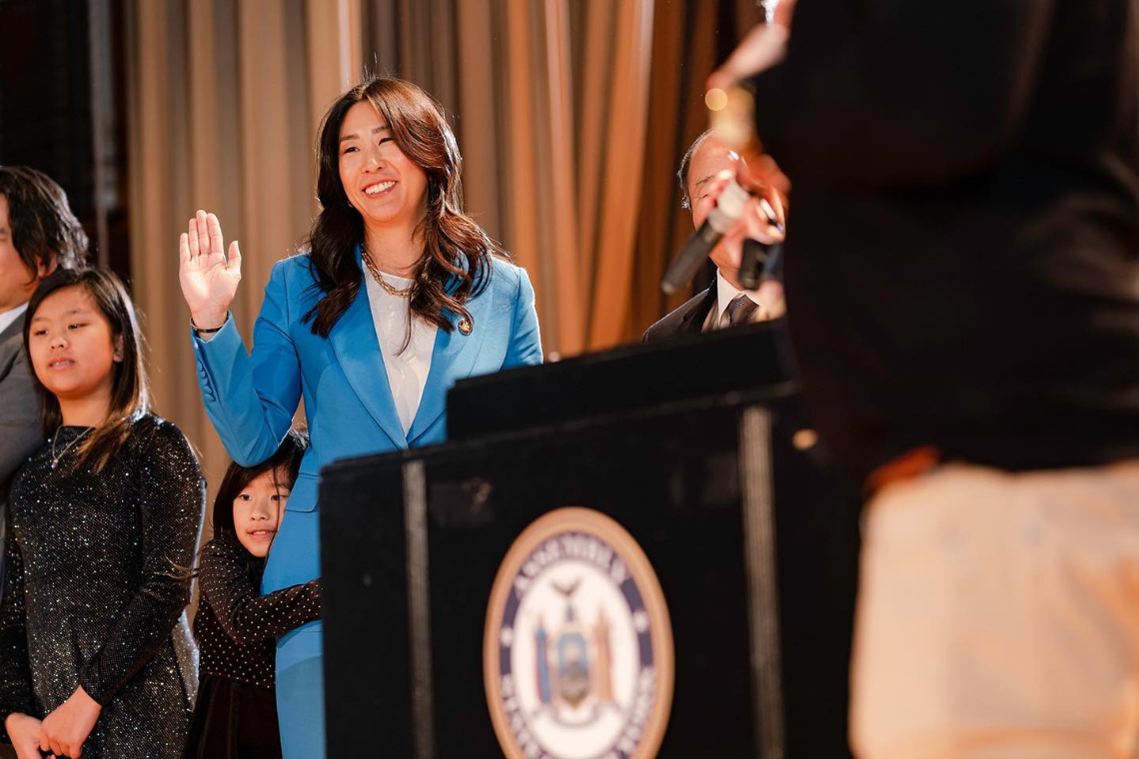
Grace Lee, assemblymember of the State of New York (Source: Grace Lee’s Facebook page)
3. Ellen Park (Korean name: Park Jeong-joo) Assemblymember of New Jersey (New Jersey District 37)
As the first Korean American woman elected to the General Assembly in New Jersey, Ellen Park is a lawyer who served as a councilwoman in the Englewood Cliffs Borough Council. About 110,000 Koreans reside in New Jersey, which is about the same number of Korean residents in New York state, and about 130 Korean companies are located in the local constituency of Ellen Park. She was newly elected in 2022, and thus far has received high acclaim from Korean society for leading legislation of bills related to those of Korean descent, such as the designation of Kimchi Day in New Jersey, designation of Lunar New Year’s Day in New Jersey, laws that allow sitting for license examinations in Korean for nail art, hair styling, and other fashion industry certifications, honorary resolution for Koreans who took part in the Vietnam War, and a bill designating Korean American Day as a holiday in New Jersey. In regards to hate crimes against Asians, which many local Korean residents are concerned about, she has confirmed the reporting process steps by meeting judicial authorities, while simultaneously implementing long-term historical education that teaches students that Asian immigrants living in the United States are part of the country in order to relieve the anxiety of local residents. Her 2-year term ends this year, so Ellen Park is running for re-election with optimism since she is currently unopposed.
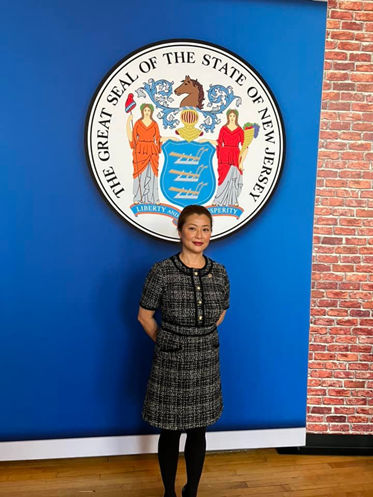
Ellen Park, Representative of New Jersey (Source: Ellen Park’s Facebook page)
4. Linda Lee (Korean name: Lee Hae-jeong) Councilwoman of the City of New York (District 23)
Linda Lee is a Korean American councilwoman who first entered the New York City Council along with Julie Won. Formerly the president of Korean Community Services (KCS), the largest nonprofit organization in New York, she is extremely interested in social welfare, particularly in areas related to mental health. Currently, she’s been appointed as co-vice president of the “Black·Latino·Asian Caucus (BLAC),” and decided to run for office to protect the rights and interests of immigrants after encountering situations where the Asian community was threatened by crime during the pandemic. Queens, the local constituency of Linda Lee, is known to have the greatest number of immigrants in the world. Therefore, she focuses on representing the voices of minorities.
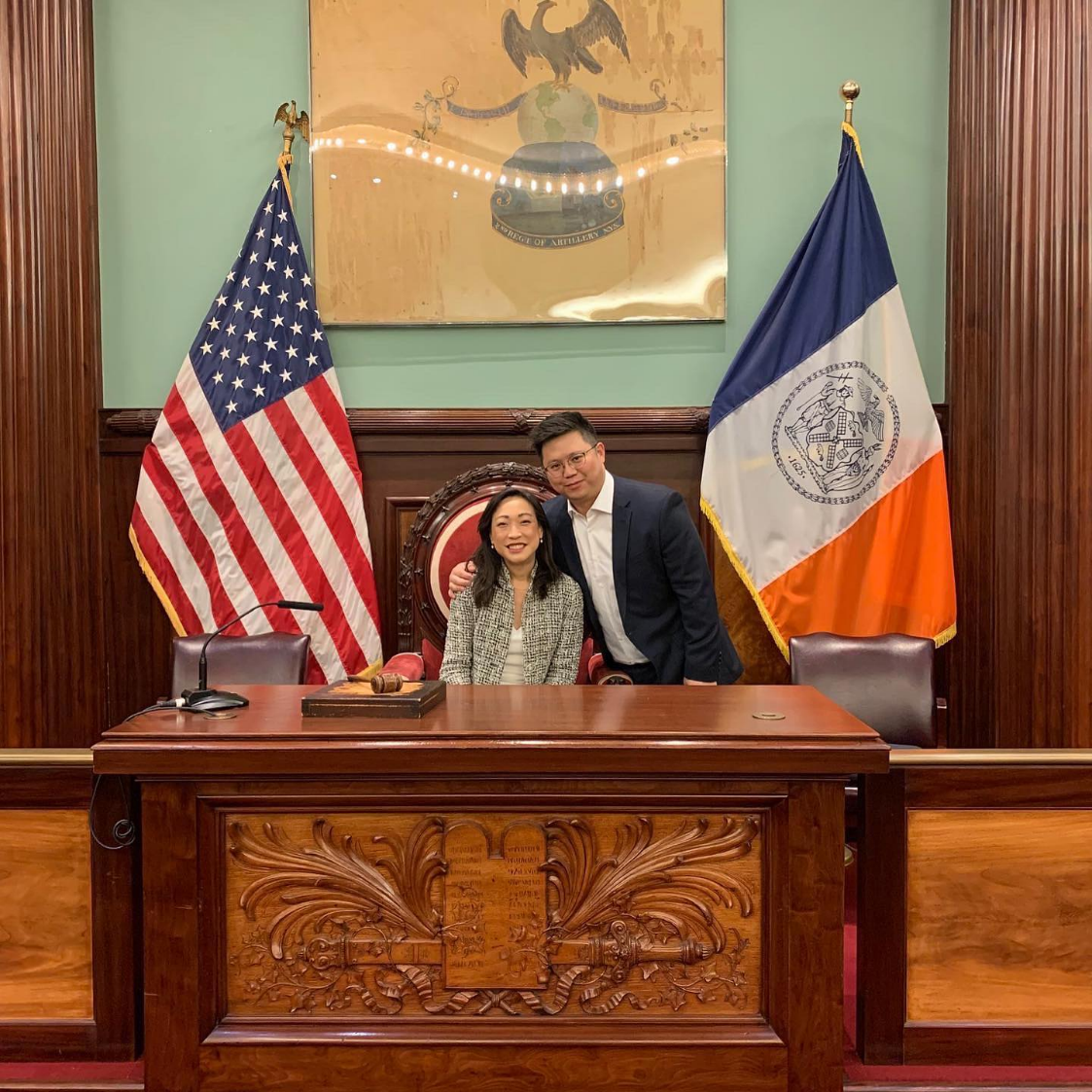
Linda Lee, Councilwoman of the City of New York (Source: Linda Lee’s Facebook page)
5. Julie Won (Korean name: Won Jae-hee) Councilwoman of the City of New York (District 26)
Julie Won’s family immigrated to the United States just as Korea was experiencing the IMF foreign exchange crisis. She worked at IBM for 7 years and was formerly the vice-president of the Korean American Association of Greater New York and a member of the Queens Community Board committee. Like Linda Lee, she serves on the council to ensure the safety of the Asian community, while at the same time promoting ordinances in the field of IT, in which she has particular interest. One of her representative campaigns is providing free Wi-Fi services for the entirety of New York City.
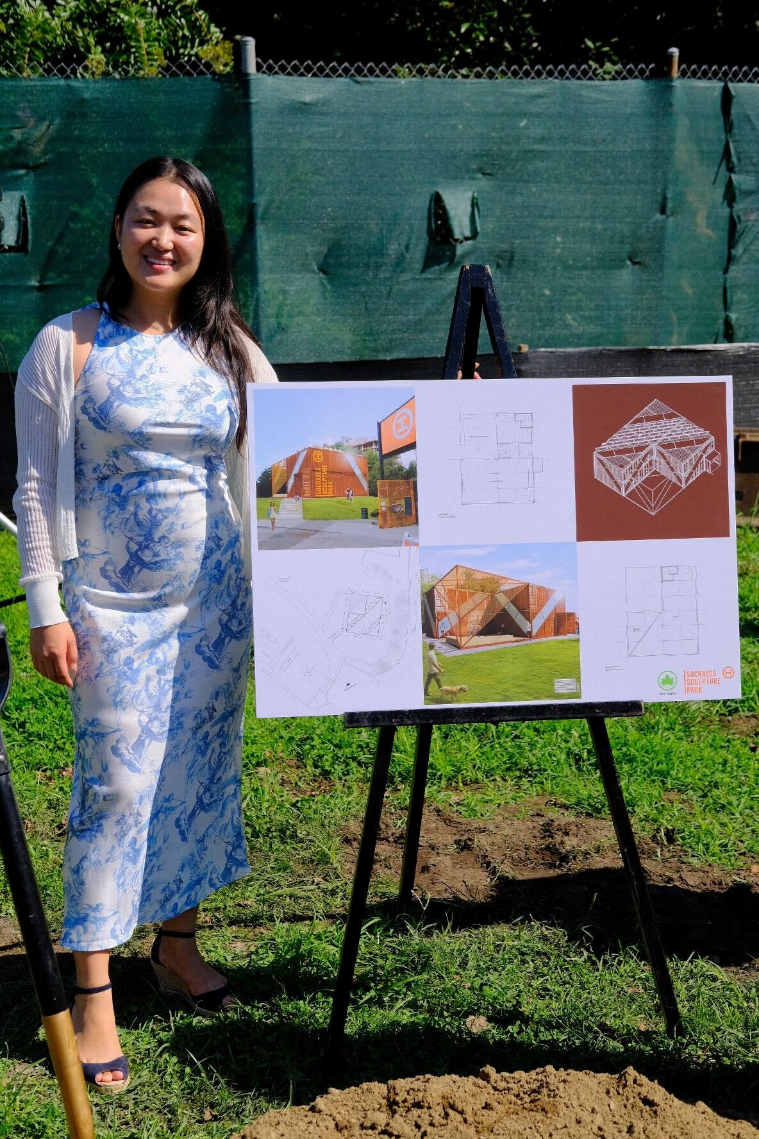
Julie Won, Councilwoman of the City of New York (Source: Julie Won’s Facebook page)
According to immigrants who have lived in the United States for a long time, they highlight the importance of politics. They say it is important to have a representative who can speak on behalf of those of Korean descent, and politicians stand at the center of that. All elected officials emphasize that it is extremely important to vote, as it is the best method to express one’s voice. They also highlight that since the United States has a long record of voting by different races and communities, active voting is required to foster increased interest.
